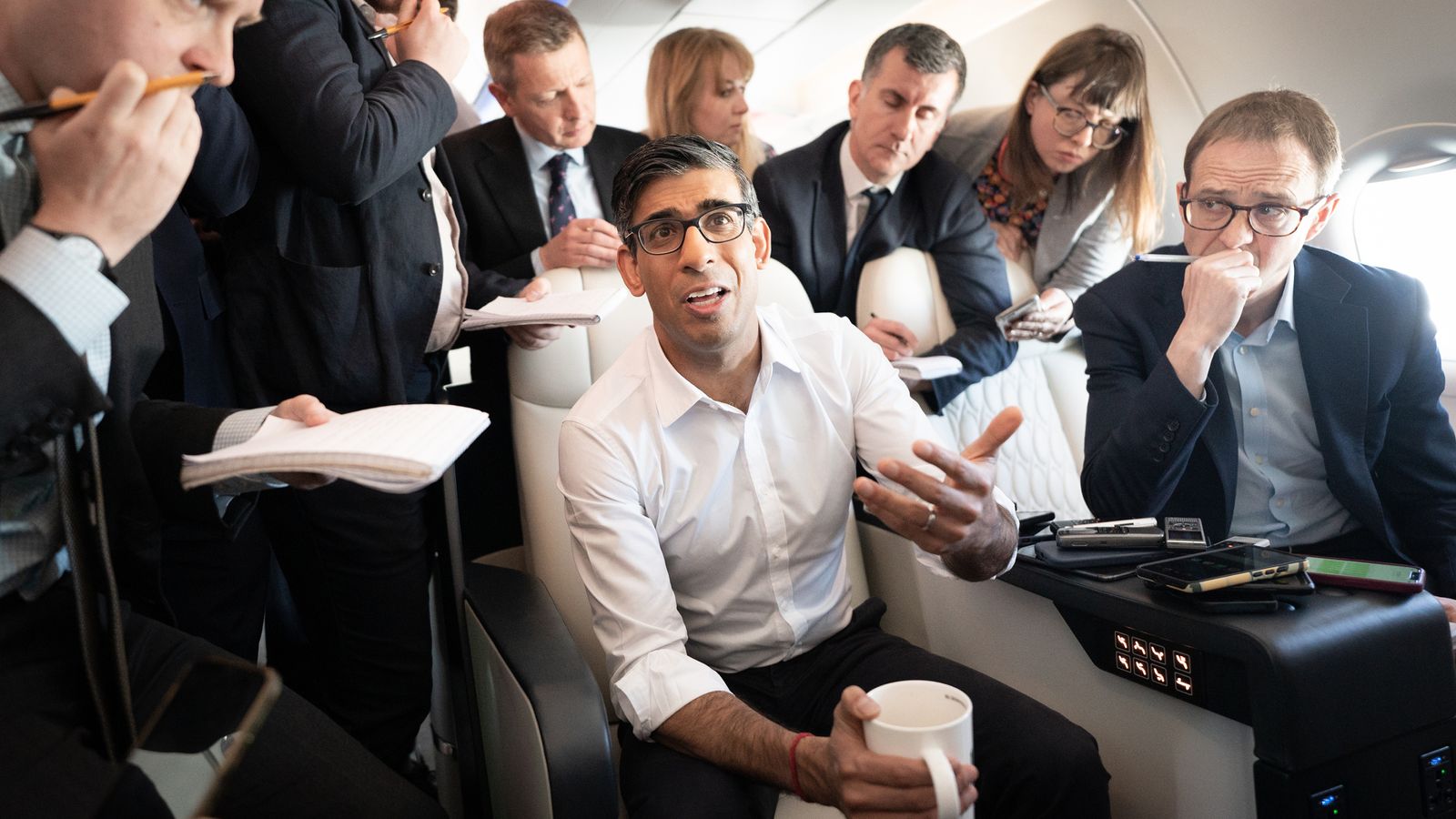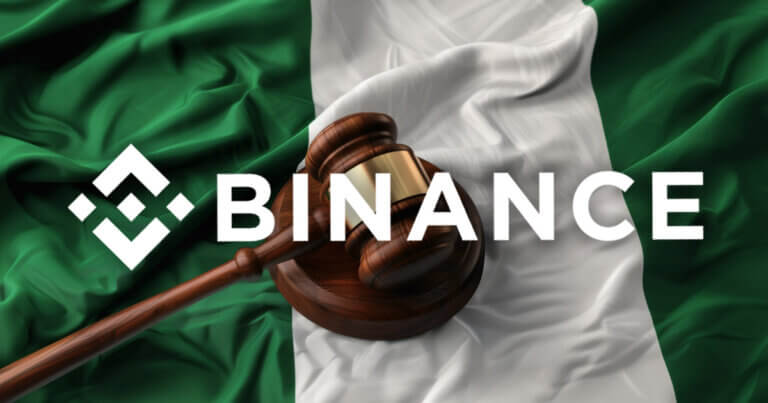The prime minister arrived back in Downing Street at 2am on Wednesday morning after a dash to the Council of Europe summit in Iceland to seek more support from European allies on illegal migration.
Seven hours later, Rishi Sunak was back in the air heading to the G7 summit in Japan.
In the plane huddle with journalists shortly after take-off – clutching a Number 10-branded mug of tea – the PM was in good spirits as he spoke of the importance of using this round of global talks with world leaders to discuss driving economic growth, support for Ukraine and presenting a united front on China.
Politics live: Tories told ‘they are the crisis’ as Labour goaded over ‘Lib Dem coalition plan’
Swapping his typical suit and tie for an unbuttoned white shirt and blue chinos, Mr Sunak appeared relaxed in the midst of an intense week.
But make no mistake about it, this is a leader under intense pressure.
Faced with his first test at the ballot box since becoming leader, the PM has failed.
Sunak’s whirlwind world tour begins with speech for domestic consumption
Rishi Sunak calls for change to rules that stopped Rwanda deportation flight in meeting with European court chief
National Conservatism Conference: What are the Tory renegade gatherings and how much of a threat do they pose to Rishi Sunak?
Seat losses exceeded the Conservatives’ worst nightmare with 1,063 councillors gone, and the projected national vote share is bumping along the Tories’ worst ever performance at local elections – putting Sir Keir Starmer and Labour into Downing Street.
And now, the dissent is beginning to bubble up as colleagues, faced with the prospect of electoral oblivion, lash out.
Speaking at the Conservative Democratic Organisation conference, Priti Patel told activists that “leadership errors cost us dearly in the local elections”, as she pointedly praised Boris Johnson.
Meanwhile, on the eve of Mr Sunak’s trip to the G7, his predecessor Liz Truss has turned up in Taiwan to reiterate her view that the threat of China is being underplayed by the UK government.
Shadow-boxing on foreign policy and doing it in a territory of such sensitivity to Beijing is unhelpful, to say the least (although one government observer gave a little punch back, remarking that a visit from Ms Truss was “not as significant as Nancy Pelosi”).
If the pressure is getting him, the prime minister did a good job of hiding it in the press huddle.
Please use Chrome browser for a more accessible video player
When it came to Ms Truss’ visit, Mr Sunak said he hadn’t “seen the details” of her trip as he reiterated the government position as being “completely aligned in substance and in language with all our allies” when it came to Taiwan.
“We have a very strong, unofficial relationship with Taiwan as our allies do,” he added. “I think that our position is united and aligned with our allies, and will continue.”
But in the backdrop of this summit, there isn’t quite a united front from the G7 when it comes to the approach to China.
Be the first to get Breaking News
Install the Sky News app for free
President Biden has committed to defending Taiwan should China invade, whilst on a trip to China last month, President Macron warned that Europe should not get “caught up in crises that are not ours”.
The hope from the British camp is that the allies can agree China policy is focused on “de-risking” and not “decoupling” – this is European Commission president Ursula von de Leyen’s approach – as a compromise between President Macron’s position and President Biden’s more hawkish angle.
But what the PM really wants to do with this summit – and the Council of Europe summit too – is to get tangible wins back home to push through his five-point plan in the run-up to the general election.
Please use Chrome browser for a more accessible video player
Because economic co-operation on a global stage gives him better hope that he can turn around the UK economy, end the cost of living crisis, halve inflation and bring in tax cuts before the next election.
Meanwhile, agreeing with Ms von der Leyen to develop a new working relationship between their respective border security agencies – this came out of the Reykjavik summit on Tuesday – helps the PM with his pledge to stop small boats crossings and cut down on illegal migration.
Miles behind Labour in the polls – the latest polling has Starmer 17 points in front – winning on the economy and being seen to at least make inroads on the matter of illegal migration is the only hope Mr Sunak has to claw back ground before the next general election, and he seems to genuinely believe there are signs of optimism.
When quizzed about the Institute of Fiscal Studies prediction that the UK’s tax burden won’t get back to pre-COVID levels for decades, the PM clearly thinks the independent think tank is too pessimistic.
Please use Chrome browser for a more accessible video player
“The IFS will make its own estimates,” he said. “What I would say is recently we’ve seen massive upgrades in our growth estimates from the Bank of England and others.
“You can see that in surveys…optimism is increasing, consumer confidence is increasing. On disposable income if you look at the most recent set of numbers, they are hugely outperforming what people thought.”
The PM is convinced that “things are moving in the right direction” and making it very clear, again, that he is a “low-tax Conservative” who “wants to bring people’s taxes down”.
Having reset the UK’s relations with key allies after the difficult Johnson and Truss periods, now Mr Sunak needs to leverage all he can get to bank wins for him back home.
This is a prime minister who is showing on the world stage he is a trusted and well-regarded ally, but he seems further than ever away from sealing the deal with the British public after six months in office, and with time running out.








